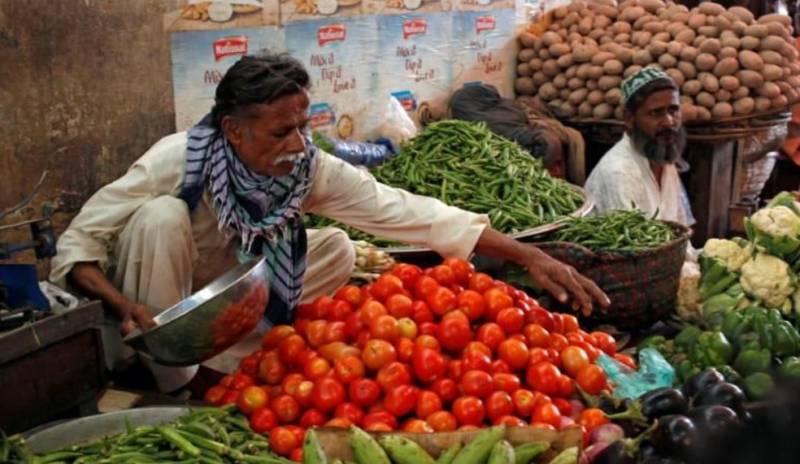Inflation reaches all-time high in Pakistan

Stay tuned with 24 News HD Android App

The Pakistan Bureau of Statistics said Tuesday that inflation rose to a record high of 36.4 per cent in the year to April driven mainly by food prices, the highest rate in South Asia and up from March’s 35.4pc.
Rural areas recorded food inflation of 40.2pc. Food inflation for both rural and urban areas reached 48.1pc, the highest since FY16 when the bureau started recording the categories separately.
Prices rose 2.4pc in April from March, the bureau said in a press release.
“The higher reading was expected over the hyperinflation in the food segment,” said Amreen Soorani, head of research at investment company JS Capital.
“While the trend may continue for a couple of months more, the base effect is likely to kick in from June-2023, slowing the pace.”
The finance ministry said headline inflation was expected to remain at elevated levels in the months to come, despite contractionary monetary policy by the central bank.
Inflation, measured by the Consumer Price Index (CPI), clocked in at 36.4% year-on-year in April. It was recorded at 35.4% last month and 13.4% in April 2022.
This is the highest inflation ever, according to data available since 1965, Arif Habib Limited said.
According to Bloomberg, Pakistan has the fastest rising prices in Asia, which have left behind even Sri Lanka where inflation was measured at 35.3% in the previous month.
Sana Tawfiq, an economist at Arif Habib Limited, said the headline inflation was in line with expectations. The prices of wheat, vegetables and fruits drove up food inflation, she said.
Meanwhile, the month-on-month inflation was driven mainly by food, clothing, household equipment and recreation sub-indices. Housing was down due to a decline in electricity charges, she commented.
Pakistan has been in economic turmoil for months with an acute balance of payments crisis while talks with the International Monetary Fund (IMF) to secure $1.1 billion as part of a $6.5bn bailout have not been successful.
Measures have been taken to try to secure the funding, including removing caps on the exchange rate, resulting in a depreciating currency, increasing taxes, removing subsidies and raising key interest rates to a record high of 21pc.
The finance ministry said the successful completion of talks with the IMF will eventually attract more capital inflows, stabilise the exchange rate and alleviate inflationary pressures.
Persistently high inflation has resulted in major lifestyle and consumption changes, with a greater number of people seeking help.
